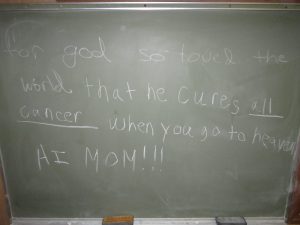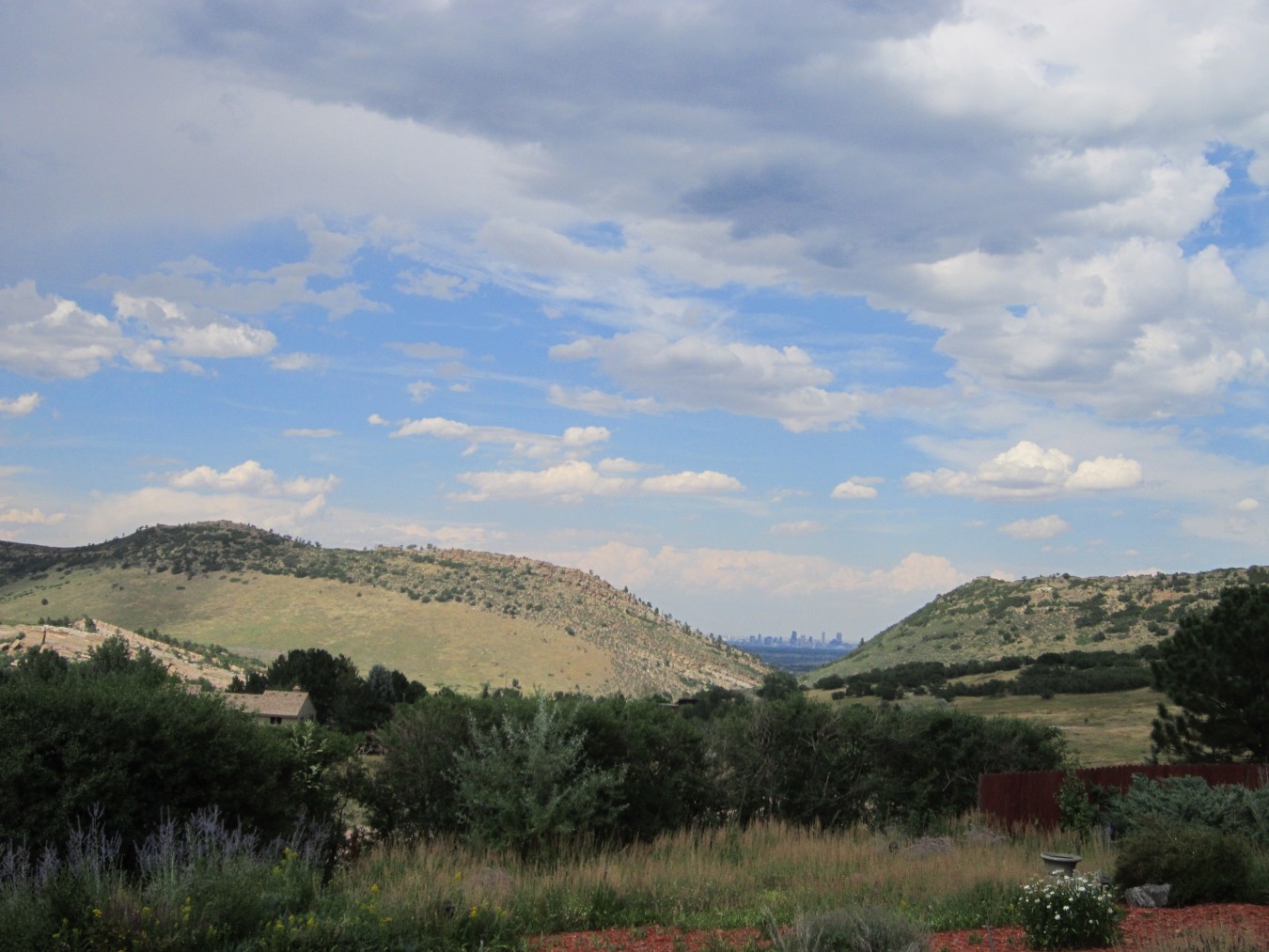Anne Lamott says that sometimes grace comes to us like “a ribbon of mountain air that gets in through the cracks.”
How deeply true that is. How profoundly necessary.
My writing well is pretty dry as of late. Lent is the busiest season of the church year, and every step of the journey is packed with meaning. Each movement is an attempt to be in step with Jesus as he was obedient to God – even to the point of death on the cross. And, for as intentional and meaningful as the lenten journey is, the journey of Holy Week is filled to overflowing. Each gathering, each worship service is packed with so many emotions, so much creative impulse, so much intensity, that I come home every evening with nothing left.
Sometimes, my heart and soul feel a bit like that rusty, gritty mountain landscape, and I’m just looking for that ribbon of mountain air to get in through the cracks.
And then it happens, and takes me by surprise.
On Sunday morning, I was teaching a group of 1st-7th graders about Peter denying Jesus three times. The curriculum I was using focused on how Jesus forgave Peter. While, I thought forgiveness was an important message to include in the lesson, I wanted to acknowledge that Peter didn’t know he had been forgiven until after Jesus rose from the dead.
Our denial of Christ, the lies we tell to protect ourselves, can leave us feeling really guilty and ashamed. But, the wonderful news is that in Jesus we find forgiveness and peace to know that we are loved, even though we mess up an awful lot.
We had a really fruitful discussion about Peter’s denial. We had fun playing a game where we crowed like roosters. We talked about Thomas needing to see proof of the risen Jesus (I think this was prompted by the way the Son of God movie depicted it). And then someone asked a question that shifted the whole conversation.
“If Jesus was raised from the dead, will I get to be raised from the dead too?”
Can I tell you how much my heart sang when I heard this question? Just as I started to say, “Yes! And this is the good news!” Another Sunday School kid chimed in, “Yes! And that’s why John 3:16 tells us that God loves the world so much that if we believe in him, we will never die.”
I responded, “Absolutely! When Jesus rose from the dead, it was a promise that we would get to join him. God loves us that much. Excellent Bible verse reference!”
The kids were energized. They all stopped working on the “secret message” worksheet we had been working on. Everyone was throwing out questions about the resurrection. If someone dies as a child, will they be a child in heaven? Stories of grandmothers who had lost babies in infancy and what those reunions would look like when Christ returns. I cherished the questions about beloved pets and if they would be with us in heaven too. Then another girl asked, “If someone dies from cancer, when they are raised from the dead, will they have to have cancer again?”
I said, “No. There is no cancer in heaven. No more sickness or death. We will all be made well.”
She whispered a wonder-filled, “Wow. That is amazing!”
After we finished our lesson, and I dismissed the class, I brought my kids with me up into the sanctuary for worship. I was still buzzing with God’s grace…buzzing with that childlike wonder. Wow! God is so good! But, it seems as though one of the Sunday School kids stayed behind for a few minutes to write this beautiful statement of faith:

“For God so loved the world that he cures all cancer when you go to heaven.”
Grace’s ribbon of mountain air more than got through the cracks on Sunday. It filled me up to overflowing. God’s grace has a way of doing that; it changes us. It moves us. When we experience it, we are no longer the same. As Anne Lamott wrote elsewhere, “I do not understand the mystery of grace — only that it meets us where we are and does not leave us where it found us.”
Grace meets us in the midst of that gritty mountain terrain, if that’s where we find ourselves. Grace meets us in the plentiful times, and in the times of scarcity. But, no matter where grace meets us, it leaves us changed. And that is the best news, indeed.

